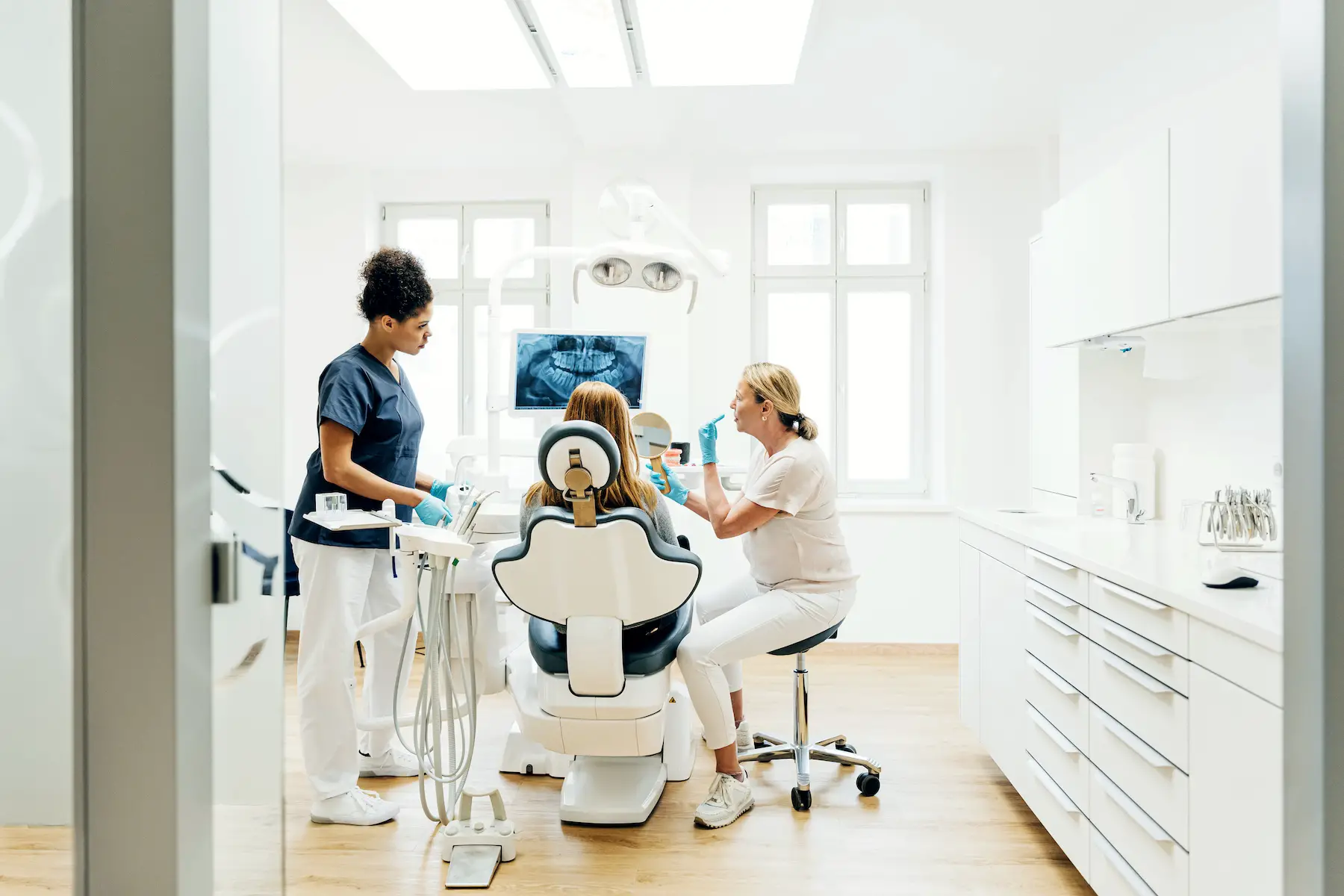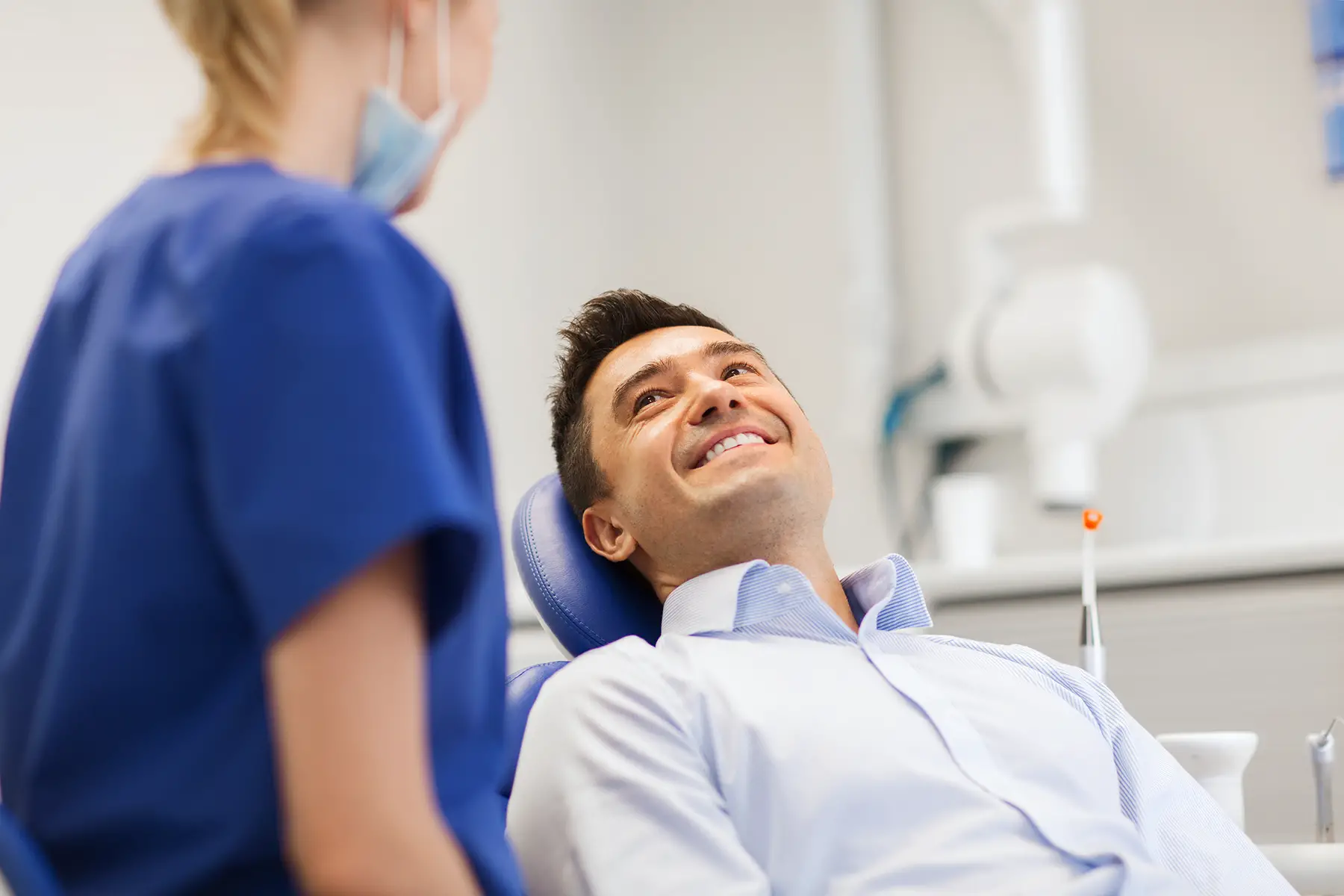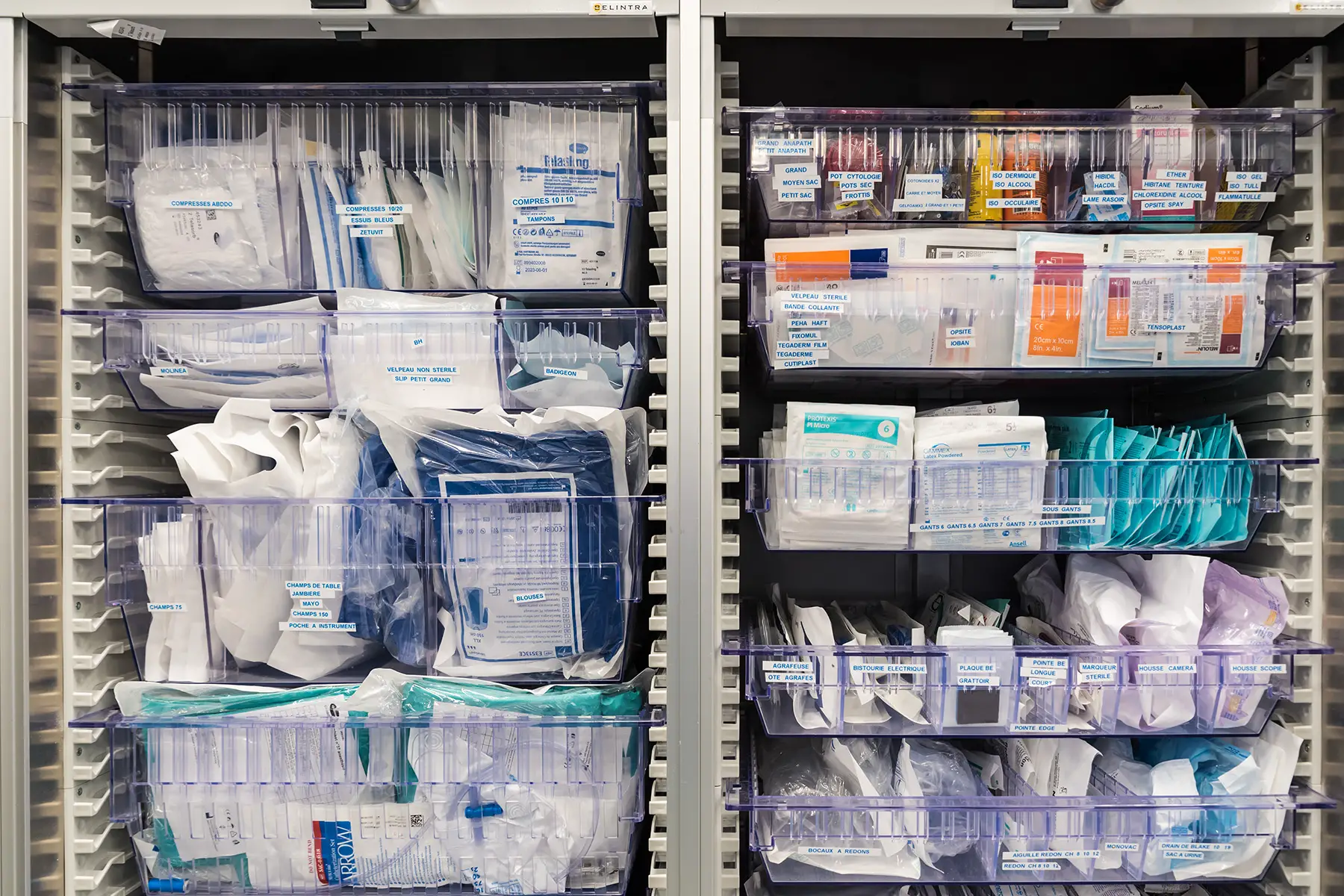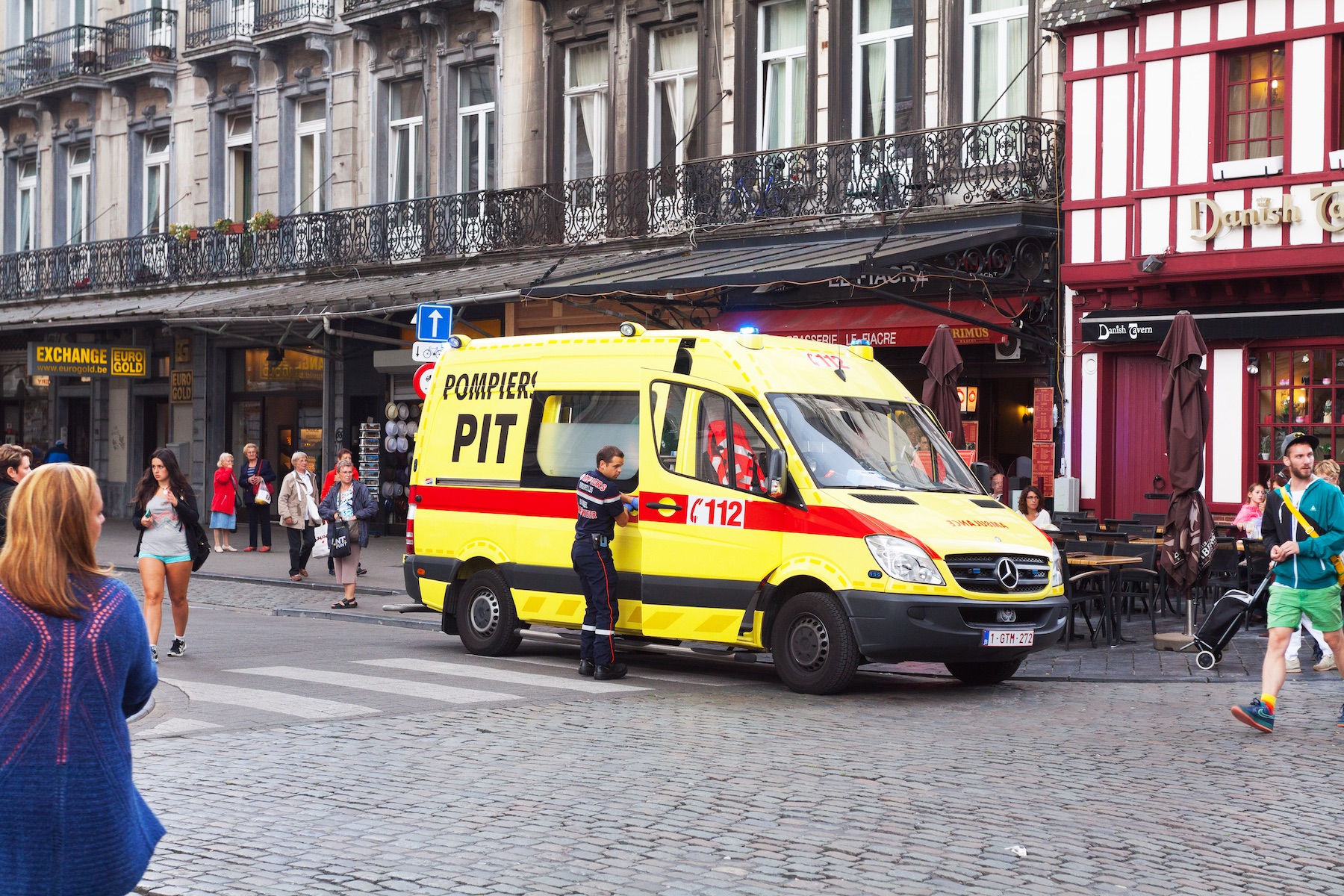Finding a dentist in Belgium may not be at the top of your to-do list with everything else you need to arrange in your new home. But getting a dental examination each year means you’ll avoid paying more for your dental care. Use this guide to learn how oral healthcare in Belgium works and what to expect when you visit the dentist.
This guide includes the following sections:
- The healthcare system in Belgium
- How does dental care work in Belgium?
- Should I get public or private dental care in Belgium?
- Public dental care in Belgium
- Private dental care in Belgium
- How to access Belgian dental care
- How to find a dentist in Belgium
- What happens at a dental appointment in Belgium?
- How much does dental treatment cost in Belgium?
- Children’s dental care in Belgium
- What should I do in a dental emergency in Belgium?
- Useful resources
Business & Expats Health Insurance
Looking for expat-friendly health insurance in Belgium? Business & Expats Health insurance provides a dedicated service for families, individuals, and businesses moving to Belgium. With competitive benefits, expert advice, and fast reimbursements on all treatments, choose Business & Expats today.
The healthcare system in Belgium
The Belgian healthcare system is one of the best in the world. The CEO World 2024 Health Care Index ranked Belgium 11th of 110 countries. It earned excellent marks for cost, infrastructure, and government readiness. It is divided into public and private sectors, with fees payable in both.
You must sign up for the public health insurance system if you are living and working in Belgium. This provides access to subsidized medical services, including dental care. You register for public healthcare alongside your social security enrollment. The public healthcare funds are called mutuelle in French and ziekenfonds in Dutch.
This is an overview of what you can expect with public insurance:
- An annual membership fee of €64
- If you are working, your employer will deduct 4.7% from your pay to contribute to the public health funds
- Your health insurance fund will reimburse 50% to 75% of the costs of your healthcare
Private healthcare in Belgium runs alongside public provision. Some dentists and specialists provide both state-funded and private treatment. So, it’s important to check upfront on what public insurance will cover if you don’t have private coverage.
How does dental care work in Belgium?
The National Institute for Health and Disability Insurance (Dutch: Rijksinstituut voor Ziekte- en Invaliditeitsverzekering – RIZIV, French: Institut National d’Assurance Maladie-Invalidité – INAMI) monitors dentistry in Belgium. The RIZIV/INAMI oversees dental standards and advises the Minister of Social Affairs, who is responsible for regulations. The Minister of Health is responsible for dentists’ registration, while the Minister of Education supervises dental education.

Belgium has recently recognized the dental hygienist profession. Hygienists work directly with dentists in Belgium. They are able to perform dental health examinations, create preventive care plans, clean teeth, administer a local anesthetic, and remove stitches and dressings. The goal is to reduce wait times for dentistry patients.
Should I get public or private dental care in Belgium?
When it comes to choosing a dentist in Belgium, you have a choice between public and private. The public healthcare system in Belgium covers dentistry and you can select the dentist of your choice. However, be aware that many dentists only work with private insurance policies. This may mean you need to travel further to find a public dentist.
Alternatively, you may wish to take out private health insurance in addition to your public policy to ensure full compensation. This is popular with many residents in Belgium, and can save you significantly should you need more involved dental treatment.
Public dental care in Belgium
Belgium’s public healthcare funds (Dutch: ziekenfonds, French: mutuelles) partially subsidizes basic dental care services such as annual check-ups, fillings, and cleanings.
You first pay the cost of dental treatments in full. You can then claim reimbursements for up to 75% of the cost of the basic treatments from your health insurance fund. Some dentists in Belgium only accept cash payments.
Be aware that the public healthcare system requires patients to receive an annual oral examination to qualify for dental care reimbursements. This scheme is called the oral care program (Dutch: mondzorgtraject, French: le trajet de soins buccaux). Failure to comply will see you face cost increases of up to 50% on procedures like fillings, root canals, and emergency treatment, as well as an increase of 15% on any out-of-pocket expenses.
Fees for public dental care in Belgium vary widely. To help protect patients from unexpected expenses, some dentists in Belgium make rate agreements with health insurance funds. Dentists must adhere to the rates once they are set, but they are not obligated to make the agreement in the first place. It is possible to search for a dentist by their rate agreement.
There are three types of fee agreements:
- Conventional care providers (Dutch: geconventioneerd, French: conventionné)
accept the agreement with the health insurance funds. They charge the official rates and may not request fee supplements. - Partially conventional care providers (Dutch: gedeeltelijk geconventioneerd, French: partiellement conventionné) accept the agreement with the health insurance funds, but only charge the official rate at specific places or times.
- Non-conventional care providers (Dutch: niet geconventioneerd, French: non-conventionné) do not accept the agreement with the health insurance funds. They determine their own rates.
Private dental care in Belgium
Many residents in Belgium top up their public health insurance with private insurance to ensure all their dental care costs are covered. Also, many dentists in Belgium only accept private insurance. A private insurer may require you to visit one of their approved dentists.
Private dental insurance will likely cover treatments beyond basic dental care, including the following:
- Preservative treatments (e.g., tartar or plaque removal, fillings, root canals, tooth extractions)
- Dental prostheses (e.g., dental implants, bridges, crowns)
- Paradontological treatments
- Orthodontics for children and adults
Private insurance can help you avoid hefty medical bills should you require any additional treatment following routine procedures that are covered by public insurance. For example, public insurance will not cover a tooth removal if you suffer from inflammation after a root canal. Having private insurance here could save you thousands of euros.

Examples of costs for treatments by private dentists in Brussels are:
- Consultation – free to €80
- Dental Implants – €900 to €1,200
- Braces – €1,500 to €3,000
- Whitening – €100 – €300
- Veneers – from €500
Learn more about signing up for health insurance in Belgium.
How to access Belgian dental care
All residents of Belgium older than 25 years of age must have health insurance. Children can receive care through their parents’ insurance until they reach age 25 unless they are already financially independent.
To access public healthcare in Belgium, you first register for social security. Then, you can choose a fund (Dutch: ziekenfonds, French: mutuelle). This is often done through your employer. You can also register at your nearest social security office.
You must provide:
- Valid ID (e.g., passport)
- Residence permit
- Proof of address (e.g., recent utility bill)
After registration, you’ll receive a social security card called an eID. This is what you will present to your chosen public health insurance provider. Then, charges from your doctor, dentist, and pharmacist can be reimbursed by your public health insurance fund.
You are free to register with a dentist in Belgium of your choosing, but do check whether the provider accepts public or private insurance. You must make an appointment in advance of your visit, usually by phone or the website for the dentistry practice. Be aware, it might take several weeks before you can see a dentist for a first consultation. Exceptions can be made when immediate or emergency dental care is required.
How to find a dentist in Belgium
According to the Federal Public Service (FPS) of Health, Food Chain Safety, and Environment, there are nearly 6,500 full-time dentists practicing in Belgium. This equates to 0.5 dentists per 1,000 inhabitants. Most residents of Belgium can reach a dentist within 15 minutes by car or public transportation, which means you should be able to find a public or private dentist near you.
Dentists in Belgium are called dentistes in French and tandartsen in Dutch. It should not be difficult to find an English-speaking dentist in Brussels or other major cities in Belgium. You are allowed to choose your own dentist, regardless of where you live, providing the dentist accepts your insurance coverage.
There are three specific professional titles in dentistry, each with a specific field of activity:
- General dentist
- Dentist specialist in orthodontics
- Dentist specialist in periodontics

Selecting a dentist who belongs to one of Belgium’s four official dentistry associations may indicate their quality of care. However, the government does not require membership. The associations are as follows:
For French-speaking dentists:
For Dutch-speaking dentists:
It is also possible to search for a dentist in Belgium based on their location and the type of service rates they have agreed to.
How to find an English-speaking dentist in Belgium
You can easily find English-speaking dentists in Brussels and other large cities. However, dental care might be much more expensive at practices catering to the expat community.
If you are purchasing private insurance, you might want to search for an expat-friendly insurance provider. The insurance you select could determine which dentists you are able to visit. Some international health insurance companies which provide dental coverage are:
What happens at a dental appointment in Belgium?
Once you’ve found the right dentist for you and booked an appointment, you’re ready for your first trip to the dental clinic. First, be prepared to show proof of health insurance and valid photo ID when you arrive for your appointment.
You pay the full cost of the dental services at the end of the visit. However, as many dentists in Belgium accept payment only in cash it’s best to determine the method of payment in advance.
After you have paid, you will receive a green payment certificate. This is what you must submit to your health insurance for reimbursement. Some dentists will submit the certificate electronically on your behalf. In that case, you will still pay for the dental services upfront. Then, keep the green certificate from your dentist until the reimbursement is transferred to your bank account.
How much does dental treatment cost in Belgium?
Dental care in Belgium is reimbursed with public healthcare funds for up to 75% of the treatment costs. Prices vary widely among dentists in Brussels and throughout the country. The cost for your dental care can depend on your age, the kind of treatments you’ve received, and the intensity of the procedures. Another major price factor is whether the dentist has agreed to rates for their services.
With private insurance, patients can receive additional reimbursement for dental procedures that are only eligible for limited or no reimbursement from public healthcare. This includes expensive treatments, such as orthodontics and dental prostheses. You should always first check with your insurer before undergoing major dental work. You might need prior authorization for certain types of care.
An annual oral examination from a dentist in Belgium costs €76.50 for patients aged over 19. A patient with public health insurance will be reimbursed €72.50. Private insurance will reimburse the patient 100% of the fee.
Example costs for dental care in Belgium
| Treatment | Total cost | Public health funds reimbursement | Private insurance reimbursement |
| Consultation | €22.50 | €17.00 | €22.50 |
| Root canal (one tooth) | €91.50 | €79.00 | €91.50 |
| Filling (one tooth surface) | €32.00 | €26.00 | €32.00 |
| Full tooth restoration | €96.50 | €82.00 | €96.50 |
| Tooth extraction | €36.50 | €29.50 | €36.50 |
These prices are based on conventional rates and are applicable to patients ages 18–55 who have received a check-up each year. If you fail to receive an annual oral examination, you’ll receive lower reimbursement rates from the public healthcare funds.
You have to pay the entire bill upfront at the end of your dental appointment. You’ll then receive a green certificate, which is essentially a receipt for your payment. You will submit this certificate to your insurer for reimbursement. Some dentists in Belgium will submit the certificate electronically on your behalf. Reimbursements can take a few weeks before they reach your bank account.
Children’s dental care in Belgium
It’s good to know that basic dental care is reimbursed by the health insurance fund for children under 18 years old.
The dentist must have agreed to conventional rates in order for your child’s dental care to be fully reimbursed. Otherwise, you will have to pay the difference on your own. Examples of treatments for children fully covered by public healthcare funds are:
- Oral examinations
- Tartar removal
- Filling or repairing teeth
- Treating dental nerves
- Pulling teeth
Pediatric dentistry treatments not reimbursed by public health insurance include:
- Crowns and bridges (more than €500)
- Most dental implants (€380 to €620)
The public health insurance fund only partially reimburses braces for children. Very few orthodontists in Belgium have agreed to conventional rates. Public healthcare funds will subsidize two types of orthodontic treatments:
- Early orthodontic treatments (Dutch: vroege orthodontische behandeling, French: traitement orthodontique de première intention – TOPI) if the treatment is requested before the child is nine years old.
- Classic orthodontic treatments are requested before the child is 15 years old and can continue until the patient is 22 years old.
But what should you do when a child loses their milk teeth in Belgium? In Wallonia, the Tooth Mouse (La Petite Souris) leaves candy, money, or a gift for children who’ve lost a tooth, while in Flanders, it’s the responsibility of the Tooth Fairy (Tandenfee).
Example prices for pediatric orthodontics in Belgium
- Orthodontic treatment for children under nine years old – costs range from €500 to €700
- Removable bracket – costs approximately €300 to €500, monthly checks can additionally cost €30 to €40.
- Fixed brackets, such as blocks – for a two-year treatment you will pay on average around €3,000, without preliminary examinations, radiographs and additional equipment (e.g., screws or springs).
- Lingual bracket – the invisible bracket on the upper teeth and regular blocks on the lower row costs around €5,000.
Finally, take the waiting period into account if you want to purchase private dental care insurance for your child’s orthodontic treatment. It can take up to 12 months before you’re entitled to a reimbursement, so don’t get caught out.
What should I do in a dental emergency in Belgium?
Woken up with a severe toothache? Dental emergencies can be painful and frightening. If you find yourself in need of immediate dental care in Belgium, you should first contact your regular dentist.
If you are not yet registered with a dentist or they are unavailable, you can search online for an on-call dentist (Dutch: spoedtandarts or noodtandarts, French: urgence dentaire).
You can also contact the on-call service for dentists after business hours, on holidays, and during the weekend. Each province has a dentistry on-call service. You may need to pay as much as €1.50 per minute for the call. Avoid calling on a Saturday morning between 09:00–09:30, when the call centers are typically very busy.
Receiving treatment for a dental emergency is not free, but dentists in Belgium are required to adhere to conventional rates while treating patients through the on-call service. You should always discuss rates with your dentist before getting treatment.
Emergency dental care is eligible for public healthcare funds reimbursement. You may need to pay an additional fee for services provided outside of regular business hours. These fees are typically between €10 to €30 before the subsidies and private insurance are applied. Payment for emergency dental care is taken in full before the services are provided.
Do not go to the hospital emergency services for a dental emergency unless your physician has advised you to do so. Use this guide for a list of emergency numbers in Belgium.
Useful resources
- RIZIV/INAMI dentist search page
- The Belgian Health Care Knowledge Centre (KCE) reports and publications on quality and safety information








